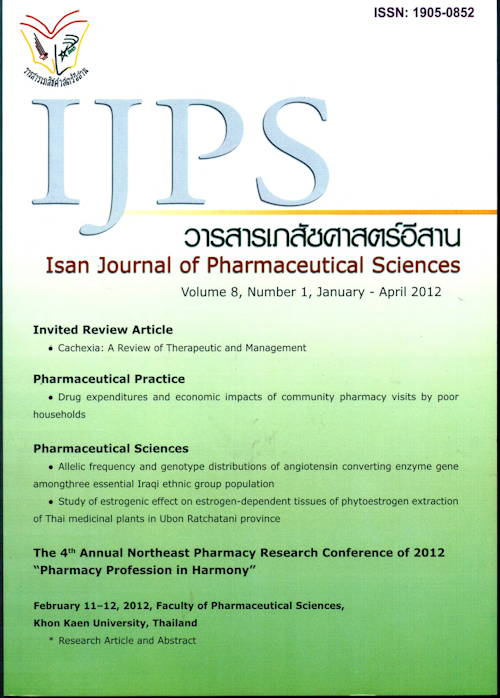Factors Related to Self Care of HIV/AIDS Adolescents, Uttaradit.
Main Article Content
Abstract
Introduction: Currently, Human Immunodeficiency Virus/Acquired Immune Deficiency Syndrome (HIV/AIDS) is still classified as a major public health problem in Thailand especially in adolescents with highest risk behaviors for new case. A critical problem is an infection of new HIV/AIDS viruses which can be caused by virus transmission and antiretroviral drug (ARV) resistant from youth risk behavior. The HIV/AIDS adolescents are isolated from the social environment such as family, friends, colleagues and their communities including health care centre because particularly people cannot accept them. Purposes and Method: The purposes of this study were to study self care, factor and the relationship between factors that affect the ability to self care of Adolescents HIV/AIDS. The 84 HIV/AIDS patients who participated in National Access to Antiretroviral Program (NAP) from hospital located in uttaradit by purposive sampling technique. A 3-4 rating scale questionnaire was used to observe the self care ability in various factors, including sex, reproductive health, nutrition, the use of ARV and social psychology. Results: Factors associated with sexual and reproductive health, nutrition, social psychology and the use of ARV are sex, education, income and duration of infection. Age is factor also associated with sexual health and reproductive health. But status, occupation and living style are not associated factor with any self care, other factors by focus group discussion and in-depth interview technique are knowledge and experience, clinical pathology and illness progression, emotion, social support and environment situation. Total self care of HIV/AIDS adolescents in uttaradit were in low level (1.52+.50), general self care is highest (2.27±.0.71), ARV Therapy (1.67± .71) nutrition (1.64 ± .67), sexual and reproductive health (1.63 ± .76) and social and psychological (1.53 ± .63), respectively. Conclusion: These data showed the benefit information for the HIV/AIDS learning process and understand about self care of HIV/AIDS adolescents. It is served as preliminary data which maintained their sustainable self-development for promoting self care of people living with HIV/AIDS. To develop comprehensive and continuum care for the HIV/AIDS adolescents is based on various factors and environment. It can help HIV/AIDS adolescents live in society and environment as normal and will have guidelines for the prevention and reduction of risk behavior to prevent ARV resistant and spread of AIDS to succeed even more.
Article Details
In the case that some parts are used by others The author must Confirm that obtaining permission to use some of the original authors. And must attach evidence That the permission has been included
References
Bureau of Epidemiology, Department of Disease Control, Ministry of Public Health. Situation of HIV/AIDS เท Thailand [Online]. 2011 Feb 12. Available from: http://www.boe.moph.go.th/files/report/20110401_78586368.pdf
The Office of Disease Prevention and Control 9, Phitsanulok. Situation of HIV/AIDS. [Online]. 2010 Dec 9. Available from: http://dpc9.ddc.moph.go.th/crd/tranfers/aids_epid/aids_aut.pdf
Uttaradit Provincial Public Health Office. Annual Report 2010.


